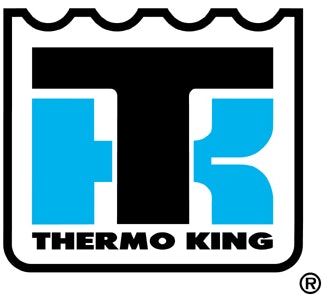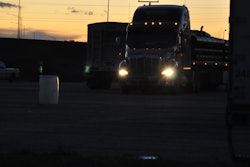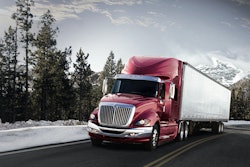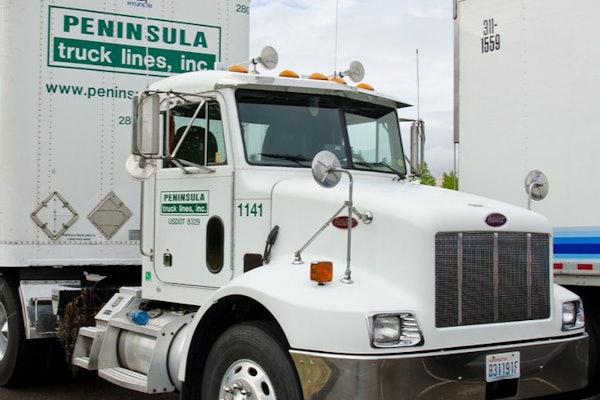
Kampf: There is still some general confusion as to what hybrid reefer units are – or rather, how they work. Hybrid technology applied to Class 8 trucks mean a propulsion system that powered the vehicle by means other than a diesel engine as it launched or moved down the road.
The term “hybrid” on a trailer refrigeration unit (TRU) refers to a unit that uses diesel fuel as it is going down the road, but can be plugged into an electric grid when stationary.
CCJ: This seems like a fundamentally sensible idea for a new technology.
Kampf: Well, it’s not really a new idea. Thermo King has pioneered the development of these systems since at least the 1970s – and possibly before then. The problem is that even today, the infrastructure is not generally in place to allow a reefer to be plugged in when stationary. So fleets have no choice but to burn diesel fuel even when a reefer trailer is stationary.
I think as fuel prices continue to rise, the value of hybrid reefer units will increase. But line haul fleets really need truck stops, rest areas as well as private locations to put in the infrastructure to allow shore power for reefers. It’s not cheap. And we need to think of innovative ways to fund these efforts.
CCJ: Any time a fleet can save fuel that money goes straight to the bottom line, correct?
Kampf: Yes. It’s important to remember that electricity is not free when running reefers on on-shore power. But generally the cost is much cheaper than diesel. Additionally, fleets can save money with hybrid reefers because the 3,000 to 4,000 hour service intervals for these units are extended any time they’re running on electric power.
CCJ: What is the current market penetration for hybrid refrigeration units?
Kampf: Right now, less than 20 percent of the market has the ability to plug trailer refrigeration units in. But, those customers that do have hybrid reefers report that they use the shore power option irregularly – which is more an infrastructure problem than anything else. When they do have electric power, they take advantage of it.
But our customers tell us they recognize that hybrid reefers are a good concept and that they think the units will become more common as infrastructure shortcomings are addressed. That’s why we’ve engineered our SmartPower units with a hybrid prep kit. So that two or three years down the road, if a fleet adds shore-power infrastructure, or gains a customer who requests they use shore power at their facility, they can easily go back and retrofit the existing unit to have hybrid capability.
CCJ: What about concerns that electric refrigeration is not as efficient as diesel powered units?
Kampf: It’s true that electric refrigeration units used to have trade-offs. As we were developing our SmartPower units, we found that existing electric units couldn’t pull down a hot trailer as well as a diesel-powered unit. The answer was to design our system with two different types of power to meet specific operating conditions: A high-speed diesel pulls down trailer temperature in a timely manner and automatically reverts to shore power once the desired temperature is reached. Then our electric motors mimic a low-speed diesel engine to consistently maintain desired temperature settings.
CCJ: Any future development trends you can share with our readers?
Kampf: Efficiency is the driver for refrigeration unit and that will continue to be the case. As different fuels for trucks become more common, it’s possible you’ll see refrigeration units powered by LNG or CNG. We’ll follow those trends as they develop in the industry at large and address them at the appropriate time.










